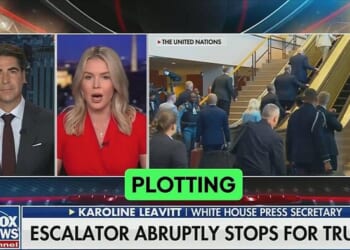Everybody except a few leftist fanatics hates paying their income tax, and they are right to do so. As the great Murray Rothbard has taught us, taxation is theft, pure and simple. The government takes what is rightfully yours and spends it on whatever it wants. If this isn’t theft, what is?
Imagine that your neighbor has a lot of money that you would like for yourself. You hold him up at gunpoint and take his money. This is obviously theft. Why is it any different if the government does it? As Rothbard puts it, “For there is one crucially important power inherent in the nature of the State apparatus. All other persons and groups in society (except for acknowledged and sporadic criminals such as thieves and bank robbers) obtain their income voluntarily: either by selling goods and services to the consuming public, or by voluntary gift (e.g., membership in a club or association, bequest, or inheritance). Only the State obtains its revenue by coercion, by threatening dire penalties should the income not be forthcoming. That coercion is known as ‘taxation,’ although in less regularized epochs it was often known as ‘tribute.’ Taxation is theft, purely and simply, even though it is theft on a grand and colossal scale which no acknowledged criminals could hope to match. It is a compulsory seizure of the property of the State’s inhabitants, or subjects.”
Rothbard is well aware that some people, owing to years of indoctrination in “public” schools, will find this hard to accept. With his customary polemical brilliance, he challenges skeptics to find the difference: “It would be an instructive exercise for the skeptical reader to try to frame a definition of taxation which does not also include theft. Like the robber, the State demands money at the equivalent of gunpoint; if the taxpayer refuses to pay, his assets are seized by force, and if he should resist such depredation, he will be arrested or shot if he should continue to resist. It is true that State apologists maintain that taxation is ‘really’ voluntary; one simple but instructive refutation of this claim is to ponder what would happen if the government were to abolish taxation, and to confine itself to simple requests for voluntary contributions. Does anyone really believe that anything comparable to the current vast revenues of the State would continue to pour into its coffers? It is likely that even those theorists who claim that punishment never deters action would balk at such a claim. The great economist Joseph Schumpeter was correct when he acidly wrote that ‘the theory which construes taxes on the analogy of club dues or of the purchase of the services of, say, a doctor only proves how far removed this part of the social sciences is from scientific habits of mind.’”
One way supporters of taxation try to show that it is different from theft is to argue that because we live in a democracy, “We the People” have voted to establish a government that can tax us. Nothing doing, says Rothbard. With passionate eloquence, he says: “It is also contended that, in democratic government, the act of voting makes the government and all its works and powers truly ‘voluntary.’ Again, there are many fallacies with this popular argument. In the first place, even if the majority of the public specifically endorsed each and every particular act of the government, this would simply be majority tyranny rather than a voluntary act undergone by every person in the country. Murder is murder, theft is theft, whether undertaken by one man against another, or by a group, or even by the majority of people within a given territorial area. The fact that a majority might support or condone an act of theft does not diminish the criminal essence of the act or its grave injustice. Otherwise, we would have to say, for example, that any Jews murdered by the democratically elected Nazi government were not murdered, but only ‘voluntarily committed suicide’—surely, the grotesque but logical implication of the ‘democracy as voluntary’ doctrine.”
I’ve already mentioned that the government indoctrinates us with propaganda, and this was a theme dear to Rothbard’s heart. He blamed the statist “intellectuals” for this: “It is instructive to inquire why it is that the State, in contrast to the highwayman, invariably surrounds itself with an ideology of legitimacy, why it must indulge in all these hypocrisies. The reason is that the highwayman is not a visible, permanent, legal, or legitimate member of society, let alone a member with exalted status. He is always on the run from his victims or from the State itself. But the State, in contrast to a band of highwaymen, is not considered a criminal organization; on the contrary, its minions have generally held the positions of highest status in society. It is a status that allows the State to feed off its victims while making at least most of them support, or at least be resigned to, this exploitative process. In fact, it is precisely the function of the State’s ideological minions and allies to explain to the public that the Emperor does indeed have a fine set of clothes. In brief, the ideologists must explain that, while theft by one or more persons or groups is bad and criminal, that when the State engages in such acts, it is not theft but the legitimate and even sanctified act called ‘taxation.’”
But if taxation is theft, what can we do about it? If we refuse to pay, the government will seize our assets by force and put us in jail. What can we do now, while we educate people about taxation?
 Rothbard had very different ideas about this from many so-called supporters of the free market. They want to simplify the process of taxation by making it easier to file your taxes. People spend a lot of time looking for deductions and loopholes, so why not eliminate these and impose a low flat tax on everybody? For Rothbard, this is precisely the wrong approach to take. We should make it difficult, not easy, to pay. Otherwise, we will become accustomed to taxation, and the government will keep raising the rate of the “low” flat tax, leaving us worse off than we were before, since we will have high taxes with no exemptions. As Rothbard explains, “But we can do better than that. We have to look differently at taxation. We have to stop looking at taxes as a mighty system for achieving social goals, which merely needs to be made ‘fair’ and rational in order to usher in Utopia. We have to start looking at taxation as a vast system of robbery and oppression, by which some people are enabled to live coercively and parasitically at the expense of others. We must realize that from the point of view of justice or of economic prosperity, the less people are taxed, the better. That is why we should rejoice at every new loophole, new credit, new manifestation of the ‘underground’ economy. The Soviet Union can produce or work only to the extent that individuals are able to avoid the myriad of controls, taxes, and regulations. The same is true of most Third World countries, and the same is increasingly true of us. Every economic activity that escapes taxes and controls is not only a blow for freedom and property rights; it is also one more instance of a free flow of productive energy getting out from under parasitic repression. That is why we should welcome every new loophole, shelter, credit, or exemption, and work, not to shut them down but to expand them to include everyone else, including ourselves.” [Rothbard was writing here before the fall of the Soviet Union.]
Rothbard had very different ideas about this from many so-called supporters of the free market. They want to simplify the process of taxation by making it easier to file your taxes. People spend a lot of time looking for deductions and loopholes, so why not eliminate these and impose a low flat tax on everybody? For Rothbard, this is precisely the wrong approach to take. We should make it difficult, not easy, to pay. Otherwise, we will become accustomed to taxation, and the government will keep raising the rate of the “low” flat tax, leaving us worse off than we were before, since we will have high taxes with no exemptions. As Rothbard explains, “But we can do better than that. We have to look differently at taxation. We have to stop looking at taxes as a mighty system for achieving social goals, which merely needs to be made ‘fair’ and rational in order to usher in Utopia. We have to start looking at taxation as a vast system of robbery and oppression, by which some people are enabled to live coercively and parasitically at the expense of others. We must realize that from the point of view of justice or of economic prosperity, the less people are taxed, the better. That is why we should rejoice at every new loophole, new credit, new manifestation of the ‘underground’ economy. The Soviet Union can produce or work only to the extent that individuals are able to avoid the myriad of controls, taxes, and regulations. The same is true of most Third World countries, and the same is increasingly true of us. Every economic activity that escapes taxes and controls is not only a blow for freedom and property rights; it is also one more instance of a free flow of productive energy getting out from under parasitic repression. That is why we should welcome every new loophole, shelter, credit, or exemption, and work, not to shut them down but to expand them to include everyone else, including ourselves.” [Rothbard was writing here before the fall of the Soviet Union.]
Let’s do everything we can to teach people that taxation is theft. Abolish the income tax!










